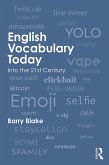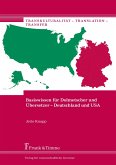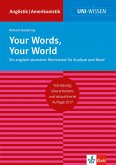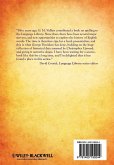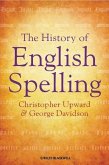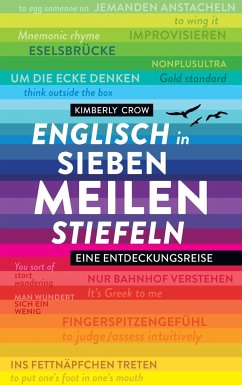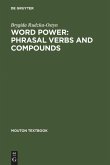This book traces the remarkable reconfigurations that English lexis has undergone in the past millennium. The vocabulary is studied as an indicator of social change, a symbol reflecting different social dynamics between speech communities, on models of dominance, cohabitation, colonialism and globalisation.
Comprehensive guide to the evolution of the English vocabulary.
Well known passages from literature are used to illustrate the variety of English words.
Accessible discussion of Latin, Greek, Germanic and Norman-French languages.
Contains original research into the make-up of the current lexical core of English.
Comprehensive guide to the evolution of the English vocabulary.
Well known passages from literature are used to illustrate the variety of English words.
Accessible discussion of Latin, Greek, Germanic and Norman-French languages.
Contains original research into the make-up of the current lexical core of English.
"Do not misprise this book by dipping into it; begin respectfullyat the beginning and follow the signs, all the way from ancientkings to modern cabbages, through a long cultural tale thatdocuments the words of Saxons and saints, soldiers and scholars,poets and politicians, admen, journalists, junkies and all thatjazz. The compelling power of it is in the detail, and all thedetails are delightful." Walter Nash, University ofNottingham
"Geoffrey Hughes's book deals authoritatively with the originand history of groups of English words from the eighth century tothe end of the twentieth and also with the emergence of the firstEnglish dictionaries and of all the major ones that have beenpublished since the early seventeenth century. It is packed withtables displaying the dates of first records, and theinterconnections of all types of vocabulary from the most technicalto the most colloquial. It will be of particular interest tomembers of the general public, to students embarking on aninvestigation of our language in the UK, the USA and otherEnglish-speaking countries, and to learners of the languageelsewhere in the world." Robert Burchfield, Editor of ASupplement to the OED, four volumes 1972-86
"This book has many useful things for the language teacher, ofwhich three stand out: First: it offers insights into our language- its history, where its words come from and how they evolved.Second: it provides information on language syllabus topics; forexample, register, word formation and roots. The third thing isenjoyment. I have read this book straight through twice, and dippedinto various sections of it many times - it is as entertaining asit is informative. Hughes' writing has the lightness of touch andimagination that come from long and profound engagement with hissubject. There is vast learning, lightly worn, in this book."Modern English Teacher
"Socialinguists will find the work a useful departure point forresearch and teaching, particularly where it deals with areasoutside their current expertise, and students and generalists willfind it a good read and highly informative throughout."Elizabeth Falsberg, English, University of Washington.
"Geoffrey Hughes's book deals authoritatively with the originand history of groups of English words from the eighth century tothe end of the twentieth and also with the emergence of the firstEnglish dictionaries and of all the major ones that have beenpublished since the early seventeenth century. It is packed withtables displaying the dates of first records, and theinterconnections of all types of vocabulary from the most technicalto the most colloquial. It will be of particular interest tomembers of the general public, to students embarking on aninvestigation of our language in the UK, the USA and otherEnglish-speaking countries, and to learners of the languageelsewhere in the world." Robert Burchfield, Editor of ASupplement to the OED, four volumes 1972-86
"This book has many useful things for the language teacher, ofwhich three stand out: First: it offers insights into our language- its history, where its words come from and how they evolved.Second: it provides information on language syllabus topics; forexample, register, word formation and roots. The third thing isenjoyment. I have read this book straight through twice, and dippedinto various sections of it many times - it is as entertaining asit is informative. Hughes' writing has the lightness of touch andimagination that come from long and profound engagement with hissubject. There is vast learning, lightly worn, in this book."Modern English Teacher
"Socialinguists will find the work a useful departure point forresearch and teaching, particularly where it deals with areasoutside their current expertise, and students and generalists willfind it a good read and highly informative throughout."Elizabeth Falsberg, English, University of Washington.


